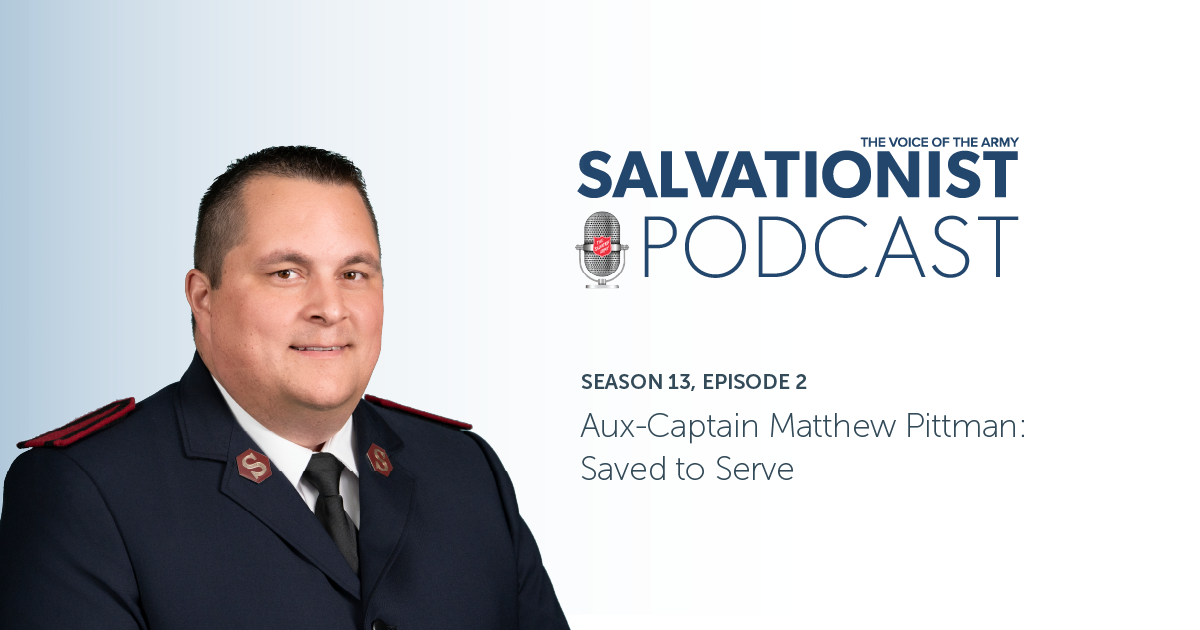 People around the world have observed World Water Day on March 22 since 1993. This day prompts a special focus on protecting water and participating in activities to draw attention to this valuable, natural resource.
People around the world have observed World Water Day on March 22 since 1993. This day prompts a special focus on protecting water and participating in activities to draw attention to this valuable, natural resource.
Why should we as Salvationists be interested or concerned about issues relating to water? There are some strong biblical, ethical, practical and personal reasons for us—as followers of Jesus, as Salvationists—to be sensitive and attentive to the state of this precious, God-given resource.
Of all that can be classed as important to our everyday lives, water is among the most essential. The human body, on average, is composed of 55-75 percent water. More than 70 percent of the Earth is covered in water, of which only three percent is fresh water. Transport, farming and food, energy, commodities, our own cleanliness, health and well-being are intimately tied to the physical properties and availability of water. Try to think of something that is not related to the use of water.
Why should we as Salvationists be interested or concerned about issues relating to water?
Personal Experience
Enduring water shortages through drought or excessive amounts of water through flooding such as what happened in Alberta last June, have devastating effects on many aspects of life for impacted individuals, families, communities, animals, plants, economies and ecosystems.
Many Salvationists have personally experienced droughts and/or floods, and individual and communal physical burdens and emotional distress in the aftermath of these water-related events.
We, as The Salvation Army, are known worldwide as reliable first responders and a dependable source of service and support in these tough situations, as we aim to bring honour to God via the sacrament of service.
Globally, there are also other significant issues that can arise when water is not shared carefully, wider community and environmental impacts are not considered, or where there is the potential for pollutants to contaminate water supplies.
The negative social and physical effects that human practices have on water are commonly most acutely felt by the poorest and most vulnerable in society. Globally, impoverished communities and individuals are, for the most part, faced with the greatest and most concerning competition for food and water, increases in water pollution and waste and other resource scarcity issues. Simply put, caring about water and the environment more broadly is part of caring for people.
Biblical Perspective
In his paper, Water: More than a Symbol, Reverend Dr. Clive Ayre gathers water-related biblical symbols in four ways.
First, water can be strongly connected with destruction. Consider the scriptural descriptions of the flood (see Genesis 6-8) and the power of water in the crossing of the Red Sea (see Exodus 15).
Second, water also relates to “cleansing and renewal” in practical, symbolic and ritual ways.
The third symbol connects water to “refreshment.” When considering water in the Scriptures, there is also a significant link between physical water and “living water”—the water of life. This draws our thoughts towards the refreshment found through the Holy Spirit (see Revelation 21:6; John 7:37; John 4:14).
The fourth scriptural water image is seen in Matthew 10:42, where Jesus highlights the simple act of giving a cup of cold water to someone in need as a prime example of the values of the kingdom of God.
Our response
Aware of Jesus' descriptions of kingdom values, which include the gift of clean water, how then do we, as followers of Jesus, as The Salvation Army within God's household, respond? Some responses include:
• Being aware of where our water resources come from, how much is available and being used or abused.
• Exploring additional ways we can responsibly steward the resources God has provided.
• Being mindful and thankful for God's provision. As Ayre states: “Water means the possibility of life. It is quite literally a matter of life and death, both for human and all other life on planet Earth.”
Let us continue to care for water—a precious resource we have been entrusted with—in order to encourage the flourishing of all of God's loved creation for the glory of God.
Matt Seaman attends Nambour Corps and is the Salvation Army representative for the Qld Churches Environmental Network. This article originally appeared in the October 2013 issue of Pipeline.
(Photo: © Ingimage.com)
________________________________________________________________________
Caring for Creation
The Salvation Army Ethics Centre, within the Canada and Bermuda Territory, has produced an excellent statement on humanity's relationship to the rest of God's loved creation, which is also relevant to Salvationist relationships with water.
The statement points to the interconnectedness of God's creation, caring for creation is an act of worship and that human sinfulness contributes to the degradation of creation.
Here is a selection from the statement:
We believe that human beings, created in the image of God … are called to careful stewardship of the earth and its resources. The call to stewardship must be seen as an invitation to inhabit God's garden, to tend to this bountiful planet, care for it and help it to flourish, joining with all creation in witnessing to God's glory. Proper stewardship ought to follow Christ's pattern of humility, service and sacrifice in the world.”
The Salvation Army Ethics Centre statement is available online at salvationarmyethics.org/position-statements.









Leave a Comment